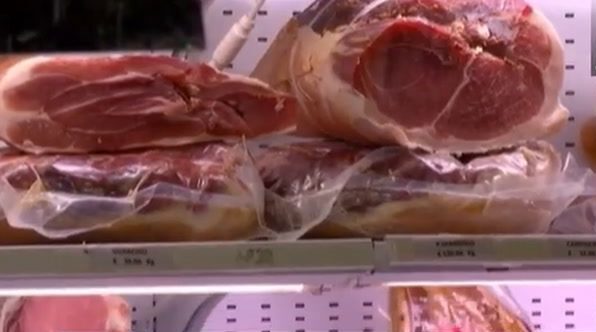BTN News: The food choices we make affect far more than just our waistlines. According to research presented at the 2024 International Alzheimer’s Association Conference, consuming processed red meat—like sausages, hamburgers, and cured meats—can significantly increase the risk of cognitive decline and memory loss. A new study highlighted that as little as two servings per week of these meats may elevate the risk of memory problems by 14%, with each additional serving aging the brain by 1.6 years.
As alarming as these findings are, they also shed light on how dietary changes could help preserve cognitive health as we age. In this article, we’ll explore the risks associated with processed red meat and discuss expert-backed alternatives to help protect your brain.
Why Processed Red Meat Poses a Threat to Cognitive Health
The link between processed red meat and cognitive issues is primarily due to harmful additives such as nitrates and nitrites. These chemicals, commonly used as preservatives, prevent bacterial growth in meat but come with a host of negative side effects. According to researchers, these compounds contribute to inflammation and oxidative stress, two key factors in neurodegenerative diseases like dementia.
Li, a lead researcher at the Alzheimer’s conference, emphasized that high sodium levels in processed meats also worsen the risk of cognitive impairment. Beyond memory loss, diets high in these meats have long been associated with increased rates of heart disease, diabetes, and cancer. Now, with mounting evidence showing their negative impact on the brain, experts are urging the public to reconsider their meat consumption.
Alternatives to Boost Brain Health
Switching away from processed red meats could significantly improve cognitive outcomes. Fruits, vegetables, legumes, and healthy fats not only reduce the risk of memory loss but actively improve brain function.
Nut-Based Diets for Cognitive Protection
Incorporating nuts, such as walnuts and almonds, into your daily diet can offer substantial benefits for the brain. These nuts are rich in antioxidants and healthy fats, both of which fight oxidative stress and reduce inflammation—critical elements in maintaining neural health.
Legumes for Protein Without the Risk
Foods like lentils, beans, and peas are excellent alternatives for those seeking high-protein options without the harmful side effects of processed meats. Legumes are nutrient-dense, providing plant-based proteins that promote cell repair and boost long-term cognitive health.
Antioxidant-Rich Foods That Protect Your Brain
Antioxidants play a crucial role in defending the brain against free radicals, unstable molecules that contribute to cellular damage and aging. Increasing your intake of berries, leafy greens, and colorful vegetables can help keep memory loss at bay and protect against neurodegenerative diseases.
How Healthy Fats Support Brain Function
Another key to safeguarding your brain is incorporating healthy fats into your diet. Foods rich in omega-3 fatty acids, like avocados, olive oil, and fatty fish (such as salmon), are essential for maintaining neural connections and improving cognitive performance. Research has shown that diets high in omega-3s can help prevent cognitive decline, improve memory, and reduce the risk of Alzheimer’s disease.
Steps to Lower Your Risk of Memory Loss
While the risks associated with processed red meat are clear, the solution is equally simple: adopting a brain-friendly diet that emphasizes whole foods. By replacing processed meats with healthier protein sources and focusing on antioxidant-rich foods, individuals can slow cognitive decline and even enhance brain function over time.
Key Takeaways:
- Limit processed red meat to reduce the risk of memory loss and cognitive decline.
- Incorporate nuts, legumes, and healthy fats to protect brain health.
- Focus on antioxidant-rich fruits and vegetables to combat oxidative stress and reduce inflammation.
Conclusion: Small Dietary Changes Make a Big Difference
The evidence is compelling—regular consumption of processed red meat can increase your risk of memory loss and speed up brain aging. However, by making thoughtful changes to your diet, such as increasing your intake of plant-based proteins, healthy fats, and antioxidants, you can protect your brain for years to come.
As the research from the 2024 International Alzheimer’s Association Conference continues to emphasize, your food choices today can have a profound impact on your brain health tomorrow.


